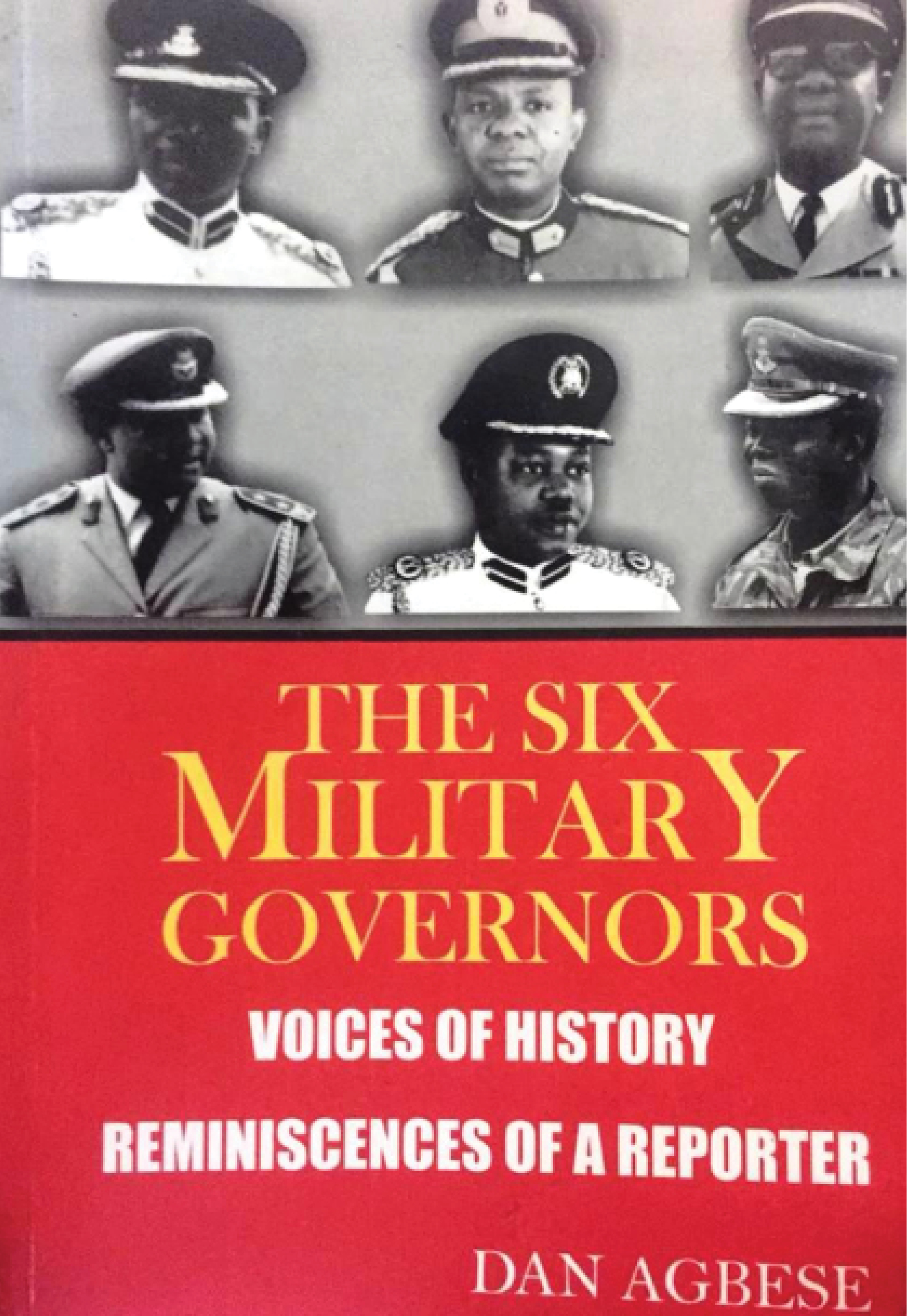The Six Military Governors
Title: The Six Military Governors (Voices of History: Reminisces of a Reporter) Author: Dan Agbese Publisher: Mayfive Media Place of Publication: Lagos Year of Publication: 2018 Pages: 153 Reviewer: Umaru A. Pate It is always a delight to read the writings of Chief Dan Agbese, Nigeria’s finest master of prose and a leading columnist that […]

Title: The Six Military Governors (Voices of History: Reminisces of a Reporter)
Author: Dan Agbese
Publisher: Mayfive Media
Place of Publication: Lagos
Year of Publication: 2018
Pages: 153
Reviewer: Umaru A. Pate
It is always a delight to read the writings of Chief Dan Agbese, Nigeria’s finest master of prose and a leading columnist that I highly respect. He is an exhilarating writer I have no dull moment reading, either in any of his weekly columns or books. Despite his advancement in age, Chief Agbese has remained engagingly prolific with ideasthat are creatively weaved and gently but stubbornly challenging for us to do what is right. Anytime, I read him, I get informed, excited and motivated. Chief Agbese is extraordinarily gifted in humour, imbued with simplicity, robustly patient and exquisitely tactful in his style. His command of the English Language is amazingly arresting that I sometimes wonder if the man can play word gymnastics with his native Idoma Language as he does with the English Language.
Again, recently, I am honoured to be one of the first set of readers of yet another book from the fountain of Chief Agbese. The book is an exciting reminisces of his early days as a green horn or cub reporter in the New Nigerian newspaper, Kaduna under Mallam Adamu Ciroma as editor. It recollected his experiences when he was literarily challenged, if not forced, to interview the first set of six military governors of the six states carved out of the Northern region in 1967. It can be recalled that the administration of General Yakubu Gowon justifiably dismantled the regional system by dividing the country into twelve states with the Northern region split into six.
The lucidly written book tells the story of the beginning of Chief Agbese’s lifelong romance with journalism at the age of 23. He was recruited by Mallam Adamu Ciroma in late June 1967 as a staff writer in the New Nigerian newspaper when it was at its peak as a prestigious and most authoritative paper in the country. In the book, he explained the excitement and challenges of his take off as a reporter and most importantly his first major task as a media man. The book reproduced the first set of interviews he had with each of the six military governors posted to the six newly created states carved out of the Northern Region. That act qualified him to be the first and perhaps the only reporter to have had the privilege of interviewing the six governors when they were posted as pioneer governors in their respective states. The governors at the time were: CP Audu Bako (Kano); Brig Musa Usman (North East); Brig Abba Kyari (North Central); Brig David Bamigboye (Kwara); CP JD Gomwalk (Benue Palteau) and ACP Usman Faruk (North Western). Of the six, only ACP Faruk is alive.
The interviews were individually conducted by Dan Agbese and serially published in the New Nigerian from September, 1967 into January, 1968 under the platform: Men of Destiny. Agbese travelled to the states’ capitals to interview each of the governors as they settled in their offices to face the challenges of governance. In the interviews, each of the governors explained his dream in the circumstances of their appointments; each one of them received the news of his appointment as a surprise. General Gowon did not consult them before the appointment but rather posted them at the onset of the civil war. They were all in their early thirties except for CP Audu Bako of Kano who was 43 years old. They had dreams, they had visions and they had expectations. They wanted to succeed against evident odds. Each of the governors wanted to develop his state, strengthen unity in the context of the civil war and bring up the civil service in the absence of the requisite human resources and limitations of funds.
Reading through the 153 page book, I can appreciate the tremendous effort and sacrifice that went into laying the foundation of the states in the North and the enormity of the challenges that the pioneer governors confronted in 1967. According to Agbese, “none of us has bothered to make a fair and dispassionate assessment of their role individually and collectively as military governors….. My take is that they helped to save our country and re-unite it during and after the civil war. Sadly, they, like Gowon remain unsung heroes because sentiments quite often trump the appreciation of facts”. Compared to what we see nowadays, one could describe the military governors of the Gowon era as saints and achievers who had the development of their states at heart.
I commend the effort of Chief Dan Agbese in recollecting his early days in journalism and reproducing the maiden interviews of the governors in the easy to read text. It tells the history of the North in the early days of state creation. It also tells us something about the state of journalistic practice in the days when the Adamu Ciroma’s were in control of the press. It is a book that can be of interest to media scholars, historians, administrators and any other person wishing to know more about issues of governance and development in the North. I have enjoyed reading the book. I recommend it without reservation to everyone interested in understanding the history of governance and development in Northern Nigeria.
Professor Pate is of the Faculty of Communication, Bayero University, Kano
